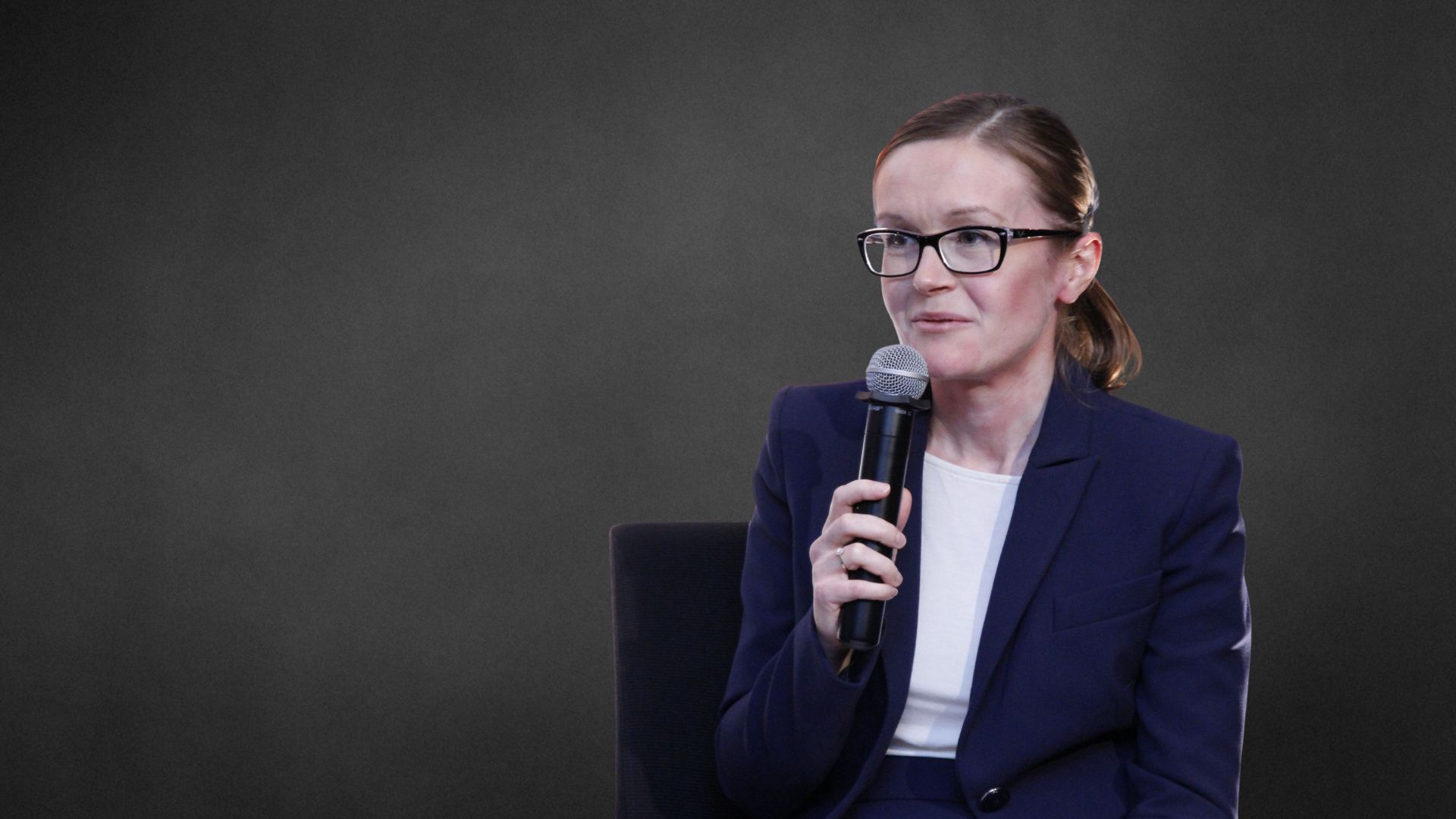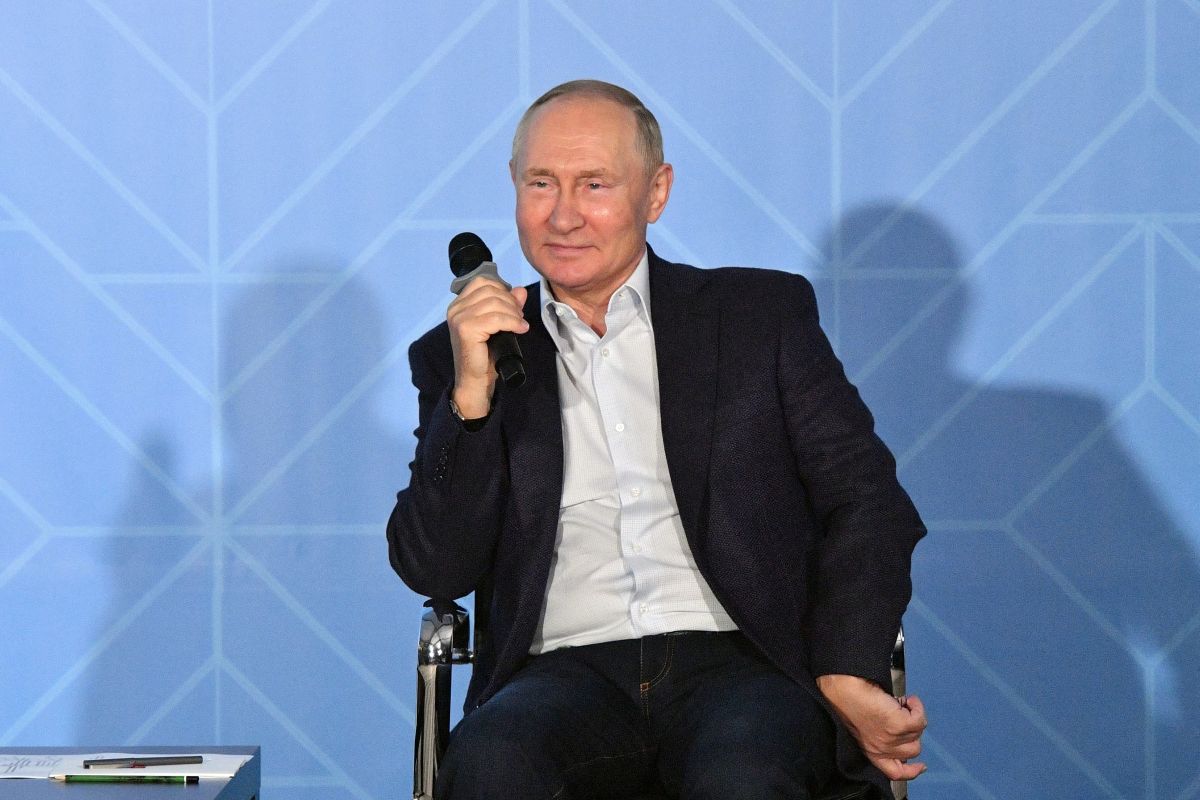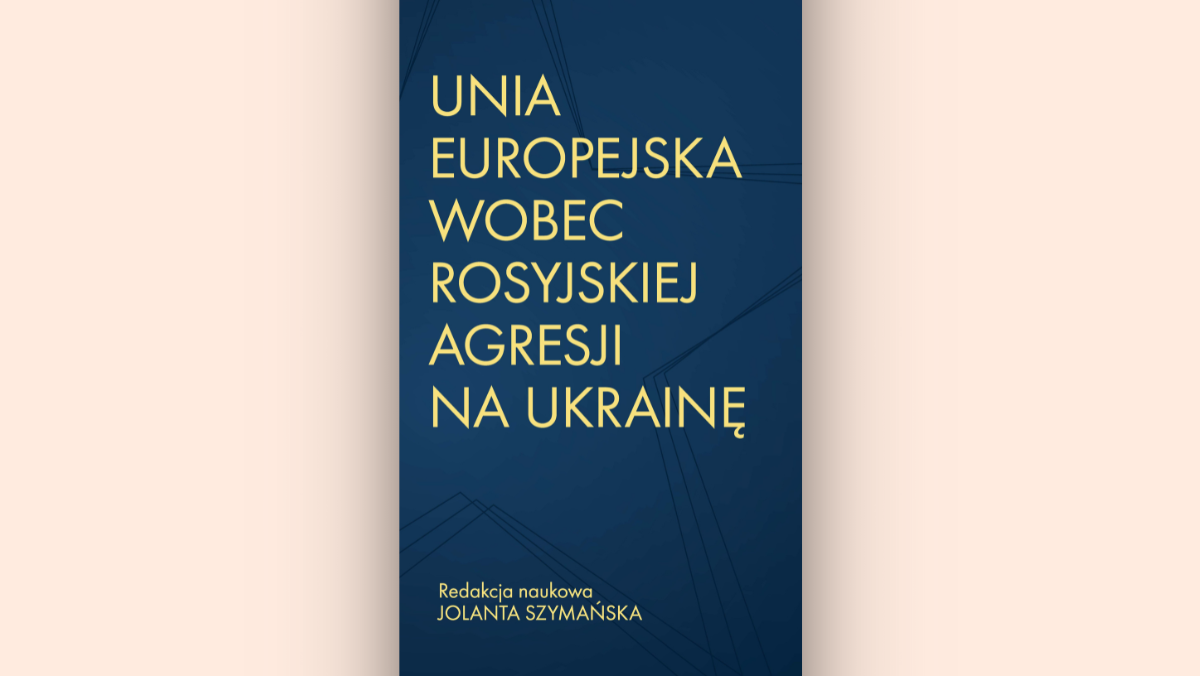Two Years after Russia's Invasion of Ukraine, Lessons Learnt Can Strengthen EU Sanctions Policy
International sanctions are having a negative impact on Russia’s economy despite the country’s authorities partially circumventing them. To tighten them even further, it would be advisable to lower the price cap on Russian oil and petroleum products and continue to strengthen EU restrictions in the energy sector, including the adoption of an embargo on LNG. The effectiveness of the sanctions will depend on improving the way EU sanctions are adopted and implemented by the Member States. The EU could introduce qualified-majority voting in sanctions policy and extend the powers of the European Commission (EC) to grant exemptions from restrictions and the European Public Prosecutor’s Office to prosecute sanctions violations.
 Dado Ruvic / Reuters / Forum
Dado Ruvic / Reuters / Forum
In the two years since the Russian invasion of Ukraine in February 2022, the EU has imposed unprecedented sanctions on Russia in the form of 13 “packages”, the last of which it adopted on 23 February this year. In March 2024, it introduced additional restrictions on individuals and entities responsible for the death of Alexei Navalny. The restrictions aim to reduce Russia’s ability to wage and finance war, weaken its economic base, and burden Russian elites with economic and political costs.
The most significant impediment to arms production in Russia is sanctions on dual-use items. The Russian military complex remains heavily dependent on Western components, primarily from the U.S., but also from the EU (mainly Germany, the Netherlands, and France). Energy restrictions are playing the biggest role in reducing Russia’s ability to finance the war. Prior to the invasion, the EU was the largest importer of fossil fuels from Russia, with profits from oil and gas sales to the Russian budget accounting for 36% of its income in 2021. So far, the EU has adopted, among other things, embargoes on oil and oil products transported by sea (along with the G7 it adopted also a price cap on these goods), coal, and LPG. In these areas, the EU can increase the effectiveness of its action.
Consequences of the Energy Sanctions
As a result of the EU oil embargo and the imposition of a price cap, Russia resorted to selling oil—at a significant discount in 2023—mainly to China, India and Turkey. Taking into account the unilateral curtailment of natural gas supplies to the EU and the effects of the as yet unexplained NordStream pipeline explosions, the estimated budget revenue from oil and gas sales decreased by about 38% ($73.2 billion) in 2023 compared to 2022 and amounted to $120.9 billion. This is destabilising Russia’s macroeconomic situation, as it is struggling with, among other things, a steep fall in the value of the rouble, more expensive imports, and increased inflationary pressures. In 2023, Russia recorded a budget deficit of 1.9% of GDP. The Russian government is trying to stabilise the economy by, among other things, increasing public spending on arms production. Based on an analysis of official Russian economic data (only part of the information has been published since the invasion) in 2023, estimated economic growth oscillated between 1.6% and 3% of GDP. In order to meet rising expenditures, the authorities have already used up half of the liquid assets ($52.2 billion) in the National Welfare Fund, in which profits from the raw materials trade were accumulated. In the medium term, the economic situation will worsen. If sanctions pressure continues, oil and gas revenues will fall further and Russia’s economic problems will be exacerbated by the loss of foreign investment, the cut-off from Western technology, and a shortage of workers (around 1 million people left the country after the invasion).
EU energy sanctions have the potential to be tightened even further. So far, they have excluded nuclear energy, oil transported by pipelines (this applies to Czechia, Slovakia, and Hungary), LNG, and pipeline gas. In 2023, the EU imported €28.1 billion worth of Russian fossil fuels (including LNG, around €7.6 billion) and €2.6 billion worth of refined products from Russian oil (imported from countries that do not apply sanctions, such as India). The price cap on Russian oil, currently at $60 per barrel, is much higher than the estimated break-even point for export by Russia ($25-30 per barrel). To maintain sanctions pressure, however, it is crucial to ensure enforcement. From July to November 2023, the average price of Russian Urals crude oil remained well above the limit, due in part to the reduction in oil production by OPEC+, of which Russia is a part, and the overpricing of oil. The challenge is an increase in circumvention of the cap through various means, such as falsification of documentation. The most significant challenge is the rise in transports of Russian oil by a “shadow fleet” of mostly old tankers (more than 15 years old) with non-transparent ownership and inadequate insurance (policies are usually provided by G7 companies, which have a dominant position in the market). While at the beginning of 2022 these tankers carried around 20% of Russian oil, in January 2024 it rose to 64%. The adoption by the U.S. of sanctions against entities involved in circumventing the cap in the last quarter of 2023, including the “shadow fleet”, has increased pressure on service providers to comply with the cap. Among other things, the Union has banned vessels suspected of violating sanctions from entering EU ports, but so far, the transit of Russian oil by the “shadow fleet” through EU Members’ territorial waters has not been restricted.
Combating the Circumvention of Sanctions on Arms Components
The “dual-use” restrictions adopted by the EU in coordination with the G7 have led to component shortages in Russia and the country’s use of less technologically advanced solutions in some weapons. The Russian government has managed to partially rebuild its import levels of sanctioned products after an initial collapse in the first months following the invasion of Ukraine. The value of such imports by Russia oscillated in 2023 at a level similar to that prior to the invasion (amounting to $8.77 billion from January to October 2023) The Russian authorities are attempting to source goods and technologies from the Union, including through companies from third countries that do not apply restrictions, such as China, the United Arab Emirates (UAE), Turkey, and Central Asian countries. Russia also intentionally develops smuggling chains, although this raises the cost of producing arms equipment. Since the beginning of the invasion, U.S. services have identified Russian smuggling structures involving individuals and legal entities from, for example, Cyprus, Bulgaria, France, Spain, Luxembourg, and Malta.
In response, the EU has stepped up diplomatic pressure on countries that do not apply the restrictions. EU Special Envoy for the Implementation of Sanctions David O’Sullivan has been holding talks with Central Asian states, Turkey, the UAE, and others on halting the transit of dozens of products used in the production of Russian missiles and drones. Several countries have introduced mechanisms to impede their re-export. The EU has imposed financial sanctions on 29 third-country entities, including those registered in Armenia, China, Kazakhstan, India, Iran, Serbia, Sri Lanka, Singapore, Syria, Thailand, Turkey, Uzbekistan, and the UAE, that have assisted the Russian military-industrial complex in circumventing EU restrictions. It also introduced the possibility to suspend exports of dual-use items to such countries, as well as the provision of related services (a unanimous decision of the Member States is required to trigger it). The problem for the EU remains how to effectively monitor the implementation of the sanctions, the compliance of Union companies with them, and the limited leverage of the EU over countries that are not interested in cooperating with the Union in this area, such as China.
EU System for the Adoption and Implementation of Sanctions
A challenge for EU sanctions policy is the adoption of restrictions by unanimity. Reaching consensus among the Member States requires numerous exceptions or transition periods, and negotiations are delayed by individual countries, such as Hungary and Austria. For example, the EU excluded only 10 Russian banks from the SWIFT financial settlement system and banned the export of only selected dual-use items. This increased the possibilities for the Russian authorities to adapt to the restrictions while limiting the possibilities for controlling exports to Russia. The introduction of qualified-majority voting in EU foreign policy, including sanctions (on the basis of a passerelle clause according to Article 31(3) TEU) is advocated by some EU members, including Belgium, Finland, France, Germany, Italy, Luxembourg, Romania, Slovenia, Spain, and Sweden. However, the adoption of such a solution entails the risk of non-compliance with the adopted sanctions by the outvoted states. This could constitute a loophole for circumventing sanctions within the EU and would require countermeasures.
The system for the implementation of restrictions by the Member States is not sufficiently harmonised. Altogether there are about 160 institutions with different competences, responsible for the implementation of sanctions legislation, and the systems for punishing sanctions violations are different. Most of the states do not have sufficient operational capacity to detect and prosecute violations of EU sanctions, and only a few of them decided to improve the system after the invasion, including Lithuania, Latvia, and Germany. As a result, states and their authorities interpret EU rules differently, for example when it comes to granting exemptions from sanctions or deciding to freeze the assets of individuals and entities. This can distort the competitiveness of companies in the internal market and allow Russian entities to circumvent sanctions where the rules are more liberal. To reduce such risks, France and Germany, as well as the European Parliament, advocated extending the powers of the European Public Prosecutor’s Office, which has so far dealt with crimes against the EU’s financial interests, so it can prosecute violations of sanctions (this would require a unanimous decision of the Member States). This would ensure that the Office would be able to operate across the EU with a uniform standard of operation.
The European Parliament adopted in March 2024 a Directive, already agreed with the Member States, that criminalises violations of the restrictions and harmonises the system of penalties in this area. The EC, which monitors the implementation of sanctions by the Member States, has taken a number of soft initiatives to improve control and coordination. It has increased reporting requirements for EU members, set up a special task force to deal with frozen Russian assets, and plans to launch a panel of experts to help monitor sanctions. As the EC’s powers and staff capacity remain limited (around 75 people deal with restrictions), some countries are raising the issue of increasing Community competence in the field of sanctions.
Russia’s Sanctions Disinformation
Russian disinformation campaigns, which increase in the Union during periods when sanctions packages are adopted, seek to undermine the point of the restrictions, divide the Member States, and discourage them from tightening the measures. They employ a narrative that sanctions do not work and harm the Union more than Russia. Campaigners point to the supposed resilience of Russia’s economy and exaggerate the economic costs on the EU side in terms of, for example, higher electricity, fuel, and food prices, and the consequent risk of the Union’s disintegration (even though the EU has dealt with energy crises before). In the EU’s neighbours and the Global South, these campaigns portray sanctions as illegal, restricting sovereignty, and aimed at the destruction of Russia by Western states seeking world domination. They blame the West for causing negative economic impacts in individual countries and globally, such as worsening the food crisis in developing countries, even though, among other things, agricultural products and fertilisers are not subject to restrictions and Russia has blocked Ukrainian grain exports from Black Sea ports. Disinformation campaigns are implemented through a variety of tools, including the dissemination of false content on social media and on sites impersonating well-known news outlets.
Despite such disinformation, public support in the EU for sanctions against Russia remains high. By the end of 2023, nearly three in four EU citizens approved of the use of such restrictions, with the lowest, half or fewer, supporting them in Cyprus, Bulgaria, and Slovakia. In contrast, only 23% of EU citizens believe that sanctions on Russia are effective (ranging from 14% in France to 30% in the Netherlands). The EU is combating Russian disinformation through a number of instruments, for example it has increased its capacity to remove disinformation under the Digital Services Act and monitors Russian campaigns through a dozen-strong East StratCom task force and an early warning system. The challenge is the spread of Russian disinformation through the narrative used by some decision-makers and opinion-makers in the EU, particularly the far-right. Campaigns are also falling on fertile ground in parts of the Global South. Correcting disinformation remains a problem due to its impact on public emotions and the widespread availability of campaign services and their relatively low cost. Although social media operators arbitrarily remove reported disinformation content, much of it remains available online.
Recommendations
EU sanctions are having a negative impact on the Russian economy, but Russia is steadily adapting and trying to circumvent them. To further reduce Russia’s ability to finance the war in Ukraine, the EU should tighten restrictions on energy. Due to the possibility of alternative supplies, it could adopt an embargo on LNG and ban transhipment at EU ports of LNG re-exported to non-EU countries. Member States that continue to import Russian oil (e.g., Czechia, Slovakia, Hungary) and gas by land or cooperate in the field of nuclear energy should reduce their dependence on Russia. In March 2022, the European Council agreed that the goal is to move the EU away from Russian fossil fuels as soon as possible. Member States could use the solidarity mechanisms of the EU REPower plan in this respect. It also is crucial that the EU, in coordination with the G7, gradually lower the oil price cap and work to reduce the scale of circumvention through, for example, further U.S. sanctions on the “shadow fleet”. Faced with dark tankers, the EU might consider activating inspections of mandatory oil spill liability insurance for ships in Member States’ territorial waters.
To hamper Russian arms production, the EU must improve its control of the implementation of dual-use sanctions. Member State services should initiate monitoring of EU companies whose components enter Russia via third countries. They can also send them warnings (so-called red flags), indicating when firms should increase monitoring of suspicious transactions or even block them.
The EU should improve the implementation of its sanctions policy. A solution, albeit difficult to achieve, would be the introduction of qualified-majority voting in the adoption of sanctions and the extension of the EC’s powers when it comes to granting exemptions from restrictions or the competence of the European Public Prosecutor’s Office to prosecute violations. To increase public pressure on companies’ implementation of sanctions, the EC should publish annually the data it collects in this area. It could also launch a financial programme to subsidise the activities of NGOs and investigative journalists who cover sanctions circumvention.
Due to active Russian disinformation, it would be advisable to increase the staff capacity of the EC and the European External Action Service in the field of disinformation detection, including the East StratCom unit and others. The EU institutions could to a greater extent facilitate the cooperation of NGOs and online platforms in removing disinformation, for example. The development of strategic communication on sanctions by Member State authorities and national parliamentarians also is important.









